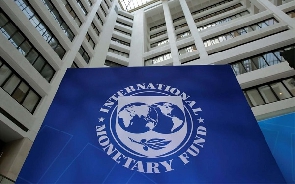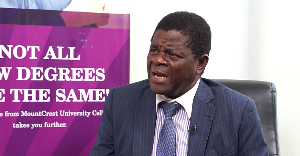The International Monetary Fund's (IMF) board has approved a disbursement of $120 million to Uganda after the fifth review of the Extended Credit Facility (ECF) programme that will see Kampala receive up to $1 billion from the multilateral lender.
This is the fourth disbursement under the ECF arrangement which commenced in 2021, bringing the total support so far to $870 billion, coming about eight months after the last disbursement of the same amount last June.
The lender said the money has helped Kampala ramp up recovery from the Covid-19 slump and slow down inflation, but multiple risks remain in the outlook that could reverse the gains, calling for continued reforms and consolidation efforts.
"Uganda's recovery is becoming more broad-based, supported by falling inflation and oil industry investments," said IMF's Deputy Managing Director Bo Li in a statement after the disbursement on Wednesday.
IMF estimates that Uganda's economic growth will accelerate to 6 percent this financial year, and further rise to 6.2 percent in the year beginning June, signalling a rebound from the 2020 slump.
Mr Li said the reforms under the ECF programme also "support fiscal consolidation to keep the public debt ratio on a downward path, ensure sustainable social and development expenditure, and implement structural reforms to improve governance and facilitate private sector-led growth."
However, the lender says a number of risks, including the effects of the recently enacted Anti-Homosexuality Act of 2023, could slow down recovery and avert the gains made in boosting the economy.
Other challenges to Kampala's outlook are weather-related shocks which could affect yields from the country's mostly rain-fed agriculture; possible rise in global fuel prices due to the Gaza strip violence; and exchange rate depreciation pressures stemming from foreign investor flight.
Meanwhile, Uganda has received a boost of €218.5 million ($237.1 million) from the European Union for eight new initiatives that will support green projects, women enterprises, business and human rights and agricultural value chains.
Announcing this at the third Uganda-EU Business Forum held at Speke Resort Munyonyo, Myriam Ferran, EU director-general for international partnerships, said the initiatives are meant to boost trade and investment and help Ugandan businesses gain from the EU Global Gateway Strategy.
The Global Gateway supports economic development, sustainable investments in connectivity and engages with the private sector to achieve transformative change in partner countries, she said.
These include green and decent jobs for youth project, dubbed WeWork, funded up to €50 million and the advancing respect for business and human rights, an overarching soft power tool, whose €5 million will be deployed to check Uganda businesses' adherence to broad human rights issues.
Africa Business News of Monday, 11 March 2024
Source: theeastafrican.co.ke

















